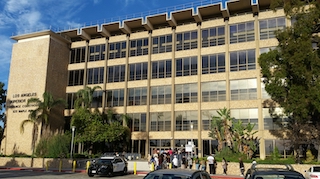Any medical doctor licensed in California has paid dearly for the privilege of practicing medicine. Years of top grades just to get into medical school, strenuous competition in medical school, sleepless nights during a residency and a severely compromised social life are just the tip of the iceberg.
This investment of time, energy and emotion can all be at risk of being erased by one criminal conviction that results in a Medical Board of California hearing decision to revoke the doctor’s license to practice medicine forever.
The Board may also suspend the license for a specified period of time, with requirements for the doctor to perform during this time, place the doctor on probation, but allow the continued practice of medicine with conditions, or issue a public warning to the doctor. These forms of discipline often follow to the punishment the criminal court may impose, which can be severe, depending upon the offense.
To help one through the maze of considerations for one facing a conviction, this article seeks to clarify the issues and procedures encountered in this nightmare.
Often the first consideration is whether the facts of the alleged crime is defensible. Can the prosecution prove the elements of the case? In this regard, the value of hiring a seasoned, experienced and highly qualified local attorney cannot be understated.
Was there an illegal traffic stop for DUI? Was there an illegal search and seizure for drugs? Did the officer use racial profiling, coerce a confession or fabricate evidence? If so, there may be a
Pitchess motion to file. Was there a confession in a sex case that was elicited without proper
Miranda warnings? If the charge is public intoxication, does the police report show you were unable to care for your own safety or that you obstructed a public thoroughfare due to intoxication? Has there been a delay in prosecution that deprived you of your Sixth Amendment right to a speedy trial? In a more complex forgery or embezzlement case, or even a domestic violence case, did the prosecutor improperly withhold evidence? An experienced attorney may be able to seek dismissal of the case, which may have great value in the subsequent administrative hearing.
When a conviction appears likely, perhaps because you admitted something to the officer in a mistaken belief the officer would let you go, the next consideration is whether the underlying facts are “substantially related” to the duties, functions or qualifications of a physician. This issue is liberally construed in favor of finding such a relationship, regardless of whether the offense is a misdemeanor or felony. For example, DUI while off-duty is considered substantially related to the practice of medicine. Naturally, any sex offense requiring registration as a sex offender is, as are all drug offenses, solicitation of perjury, petty theft and medical fraud are related to the duties of a physician and thus, triggers consideration by the Medical Board.
How the criminal case resolves is perhaps the biggest consideration of all. It is critical to know that while a guilty verdict at trial certainly exposes one to Board discipline, a “no contest” plea and even an expunged conviction for a misdemeanor can subject one to discipline. A doctor who even completes a drug diversion program will not escape Board consideration either. While not all of these resolutions are considered “convictions” by a criminal court, they all are for purposes of the Board.
The Board can act on such a “conviction” once the time for appeal has passed, the judgment has been affirmed on appeal or probation is granted through the court.
A good criminal defense attorney can help not only resolve the criminal case on fair or even favorable terms, but also develop mitigating factors that help soften the often brutal consequences a doctor may face at the Board. The attorney can uncover mitigating factors through the criminal discovery process about the alleged victim’s credibility, resolve the case so that there is minimal or no jail (or prison time) time but community service within the medical field, and include rehabilitative counseling as part of the criminal case plea bargain.
Such rehabilitative counseling will have a collateral benefit in the administrative hearing in showing less punishment is appropriate. Such counseling will relate to the conduct at issue, but may include Alcoholic Anonymous meeting, Narcotics Anonymous meeting, sexual compulsiveness class, anger management classes or kleptomaniacs anonymous meetings, for example.
With attention to such details, a doctor facing administrative discipline for a conviction can be more assured of a fair outcome. We therefore highly recommend that any licensed medical doctor facing administrative discipline for a crime retain not only experienced criminal defense counsel, but experienced counsel in Medical Board Licensing matters who regularly appears at the Medical Board.
For more information about facing a criminal case, diversion and state licensing issues, please click on the following articles:
- Why Hire a Private Attorney? Why Shouldn’t One Use the Public Defender?
- Is Diversion Available for Veterans in a DUI? Yes
- What Does the New Law in 2015 Concerning Expunged Convictions Mean for State License Applications?
Contact us. Torrance Courthouse
Torrance Courthouse